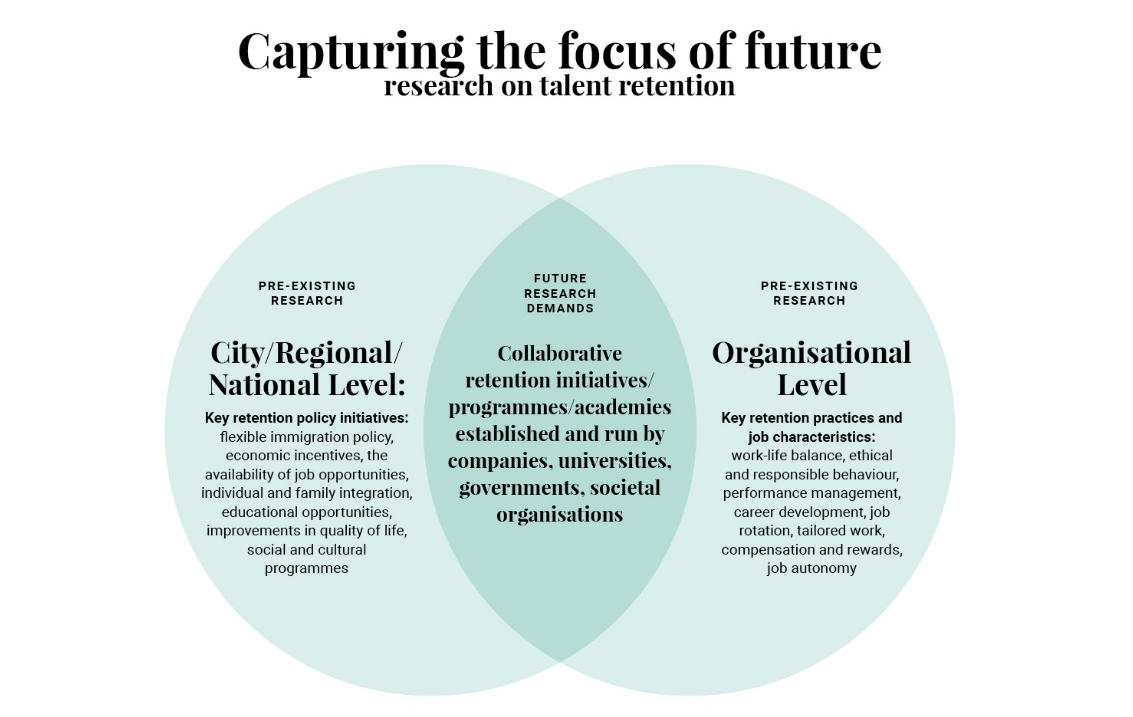Managing people effectively has increasingly become an important focus area for organizations, which have realized that having the right people on board is critical for success.
Research on talent management generally and talent retention specifically is no longer new. However, most of what we know about talent retention stems from the corporate world of multinationals. Their retention practices involve work-life balance, ethical and responsible behavior, performance management schemes, compensation, career development, increased job autonomy and tailored and flexible work arrangements. Especially the latter are highly relevant during times of crises such as COVID-19.
We know much less about talent retention in small and medium sized companies (SMEs) and even less about how organizations that operate in other sectors (i.e. public and non-profit) retain their talented employees. Existing research has looked at talent retention initiatives taken at the city, regional and/or national levels, usually by public authorities. These may be stand-alone local or regional initiatives, or they can be part of a larger national programme, such as Finland’s Talent Boost. These policy initiatives may include flexible immigration arrangements, economic incentives, the availability of job opportunities, integration schemes, improvements in the quality of life and social and cultural programmes.
There is little systematic evidence on how multiple organizations across different sectors seek to create collaborative initiatives for retaining talent and addressing regional and local talent shortage. The figure below delineates existing research into talent retention and shows how researchers can combine traditions to explore joint talent retention programmes.

Source: Niemi et al. (2021, p. 68)
Collaborative initiatives, such as the Vaasa-based Digitalisation Academy, provide a good opportunity to understand better how different stakeholders, such as companies, public authorities, and universities, can join forces in order to address talent shortage.
The thinking behind Aristotle’s famous saying ‘the whole is greater than the sum of its parts’ can well provide solutions to talent shortage. It first takes a shared vision, a collaborative mindset and the willingness to see the common interest. Then, with these elements in place, it takes concrete decision-making and action related to who does what, time commitment, regular communication and the ability to learn together along the way.
PhD Sorin Dan, Postdoctoral researcher, University of Vaasa’s InnoLab
Blog is based on the final report of the DA-PITO-project:
Niemi, Mari K. & Sorin Dan, Johanna Kalliokoski, Khuram Shahzad, Shah Rukh Shakeel, Rathan Alagirisamy, Iida Laurila (2021): Talent Retention and the Development of Digital Skills. A study of the ecosystem-based Digitalisation Academy located in Vaasa, Finland. Publications of the Ministry of Economic Affairs and Employment 2021:23. Ministry of Economic Affairs and Employment of Finland, Helsinki, 2021.
Image credit: Ali Mokhtari




